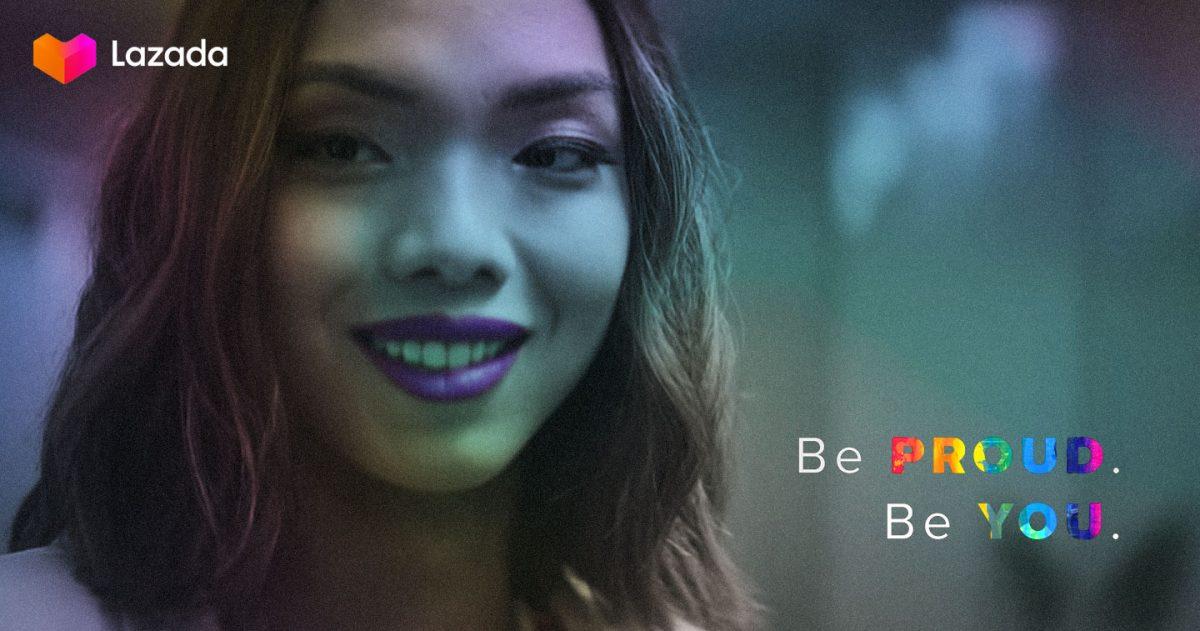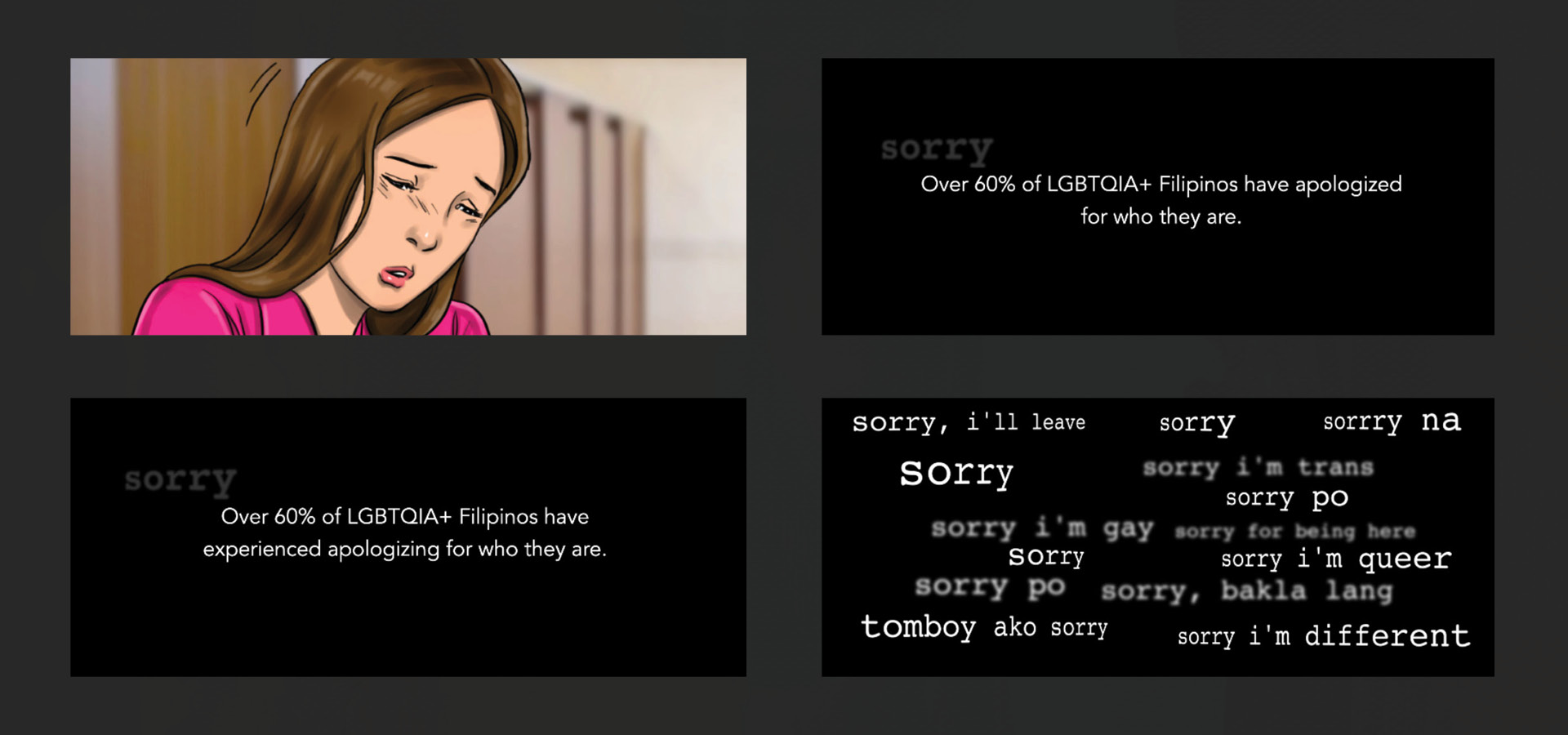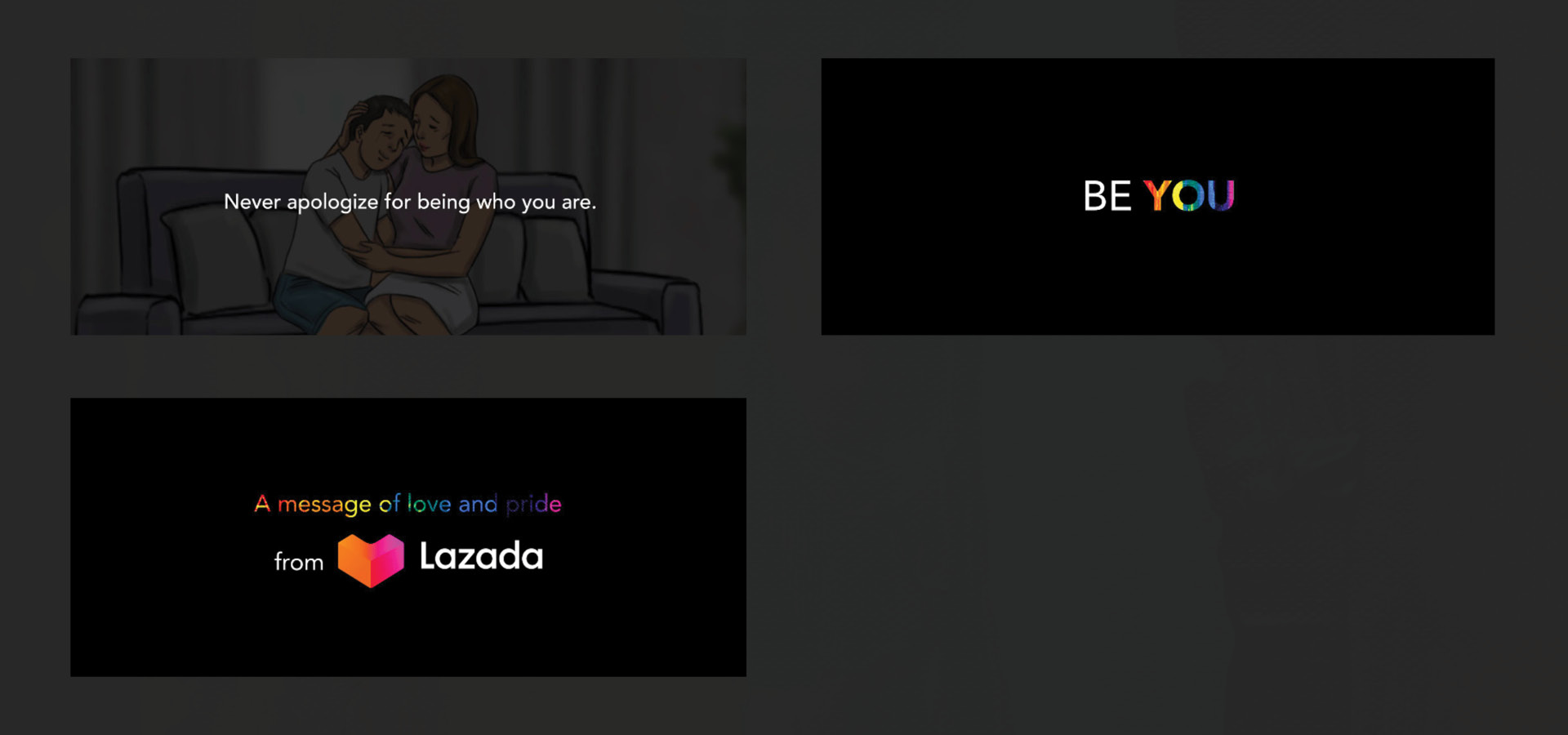MANILA, PHILIPPINES — The agency and the director tackled the word “Sorry” in Lazada’s latest film, “Apology” – and why the LGBTQIA+ community never has to apologize for who they are.
Elton John once wrote, “Sorry seems to be the hardest word”. But for LGBTQIA+ folks, the word “Sorry” carries an entirely different load, a burden that is unique to their community’s experiences.
Whether it’s saying sorry for coming out, being in the same space, or for simply being there, people who identify as LGBTQIA+ have often had to apologize for their identities throughout their lives. “In our survey, we found that 60% of LGBTQIA+ individuals have apologized for being lesbian, gay, bisexual, queer, and with other non-heterosexual orientations”, according to Raffy Parcon, Client Services Director of Publicis JimenezBasic. “What society has labeled LGBTQIA+ individuals to be contributes to difficulties with self-acceptance, leading many of us to apologize merely because of our sexuality.”
This conversation surrounding apologies and acceptance was tackled in Lazada’s latest film, “Apology”, a culmination of the brand’s activities for this year’s Pride Month. “Lazada has always been an ardent supporter of the LGBTQIA+ community, and especially so during Pride Month. The film was pitched to Lazada to complement and to amplify all the other Pride Month activities that were already planned”, according to PJB.
While brands participating in Pride count as a win for visibility and representation, there is public clamor for these brands to go beyond Pride Month and champion inclusivity all year round. According to PJB, their client felt strongly about authenticity in representing queer stories and experiences in their campaign, and wanted the film to reflect exactly that –– from the visual treatment and writing to employing real LGBTQIA+ folks behind and in front of the camera to tell their own stories and experiences.
In order to carry out this vision of authenticity and true representation, the agency selected award-winning film director Pepe Diokno, who has been at the helm of much-acclaimed feature films and commercials.
As Direk Pepe shares, he resonated with PJB’s storyboard during the bidding and immediately felt drawn to the project. “(The campaign) was bidded out, and when I first read it, I got goosebumps. I told Grace Quisias, my executive producer at UxS, that I needed to do this project. So we made everything work, and I’m grateful to Lazada and PJB for the opportunity.”
Pepe adds that his personal experiences as a gay man further added a layer of nuance and truth to the story. “As a gay man, I’ve felt out of place and have apologized before. Even our actors could relate to the characters they portrayed. In fact, we drew on their personal experiences for their performances.”
The film features three characters in everyday situations – from ordering at a coffee shop, using the restroom, to having a conversation with a family member – all of whom have experienced shame in simply being who they were. As PJB puts it, “Shame encompasses the emotions about who you are and how you feel about yourself –– that you’re not good enough, that you’re a bad person, or that you’re broken. We want to change the conversation about the shame attached to being LGBTQIA+. Shame is a result not of what or who LGBTQIA+ are inherently, but of what society has labeled us to be.”
To further capture its authentic approach, Direk Pepe opted for hand-held shots for a more expressive visual, while anamorphic lenses balanced its raw feeling and evoked a more cinematic vibe. The director worked with his DOP, Tristan Salas, and PD, Princess Barreto to manipulate light, shadows, and color to make each vignette distinct and to create mood.
“Editing was also very interesting, because the structure of the final film is much different than the storyboard”, Direk Pepe adds. “I am grateful to PJB for the trust, because we really played around with the cut to create tension, and build emotional peaks and valleys.”
In spite of portraying different narratives, the film’s scenes were actually shot in a single location in one day, following current quarantine protocols. “Lazada’s brief was to just be authentic and true. The intent was to show love and support for the LGBTQIA+ community, full stop. At PPM, everyone teared up — agency, client, even me — because we all saw truths in the story”, Diokno shares.
Inclusivity and LGBTQIA+ representation were values that Lazada held closely as a brand –– something that the e-commerce giant and the agency shared in common. According to PJB, “Apology” is simply a glimpse of their companies’ daily efforts to uphold diversity and inclusivity. “Maintaining or supporting the LGBTQIA+ community is a collaborative effort involving everyone, particularly our Agency talent, client and the leadership team.”
Advertising, and media in general have long wielded their power to influence minds, stir discussions, and provide a platform for voices and narratives to be peddled. And in an age where brands are clamored to serve the public good, Lazada, PJB, and Direk Pepe hope that this film does its part in steering the direction towards LGBTQIA+ representation in the mainstream.
“In order for the queer community to get the representation we desperately need in TV, movies, and other forms of media, we as a society need to build off of the past missteps in LGBTQIA+ representation and continue the fight for a more nuanced and authentic LGBTQIA+ experience to be present on our screens”, PJB expresses, adding, “We need to make sure that the stories of diverse groups – including that of the LGBTQIA+ community – are being told and being told fairly and in an authentic manner.”
As for Direk Pepe, the film is a reminder of how kindness goes a long way in making LGBTQIA+ people feel accepted. “The film shows how little acts of kindness — like an embrace, a touch, or even calling a person by their preferred pronoun — can affect a person. This Pride, let’s remind ourselves to be kind.”


















